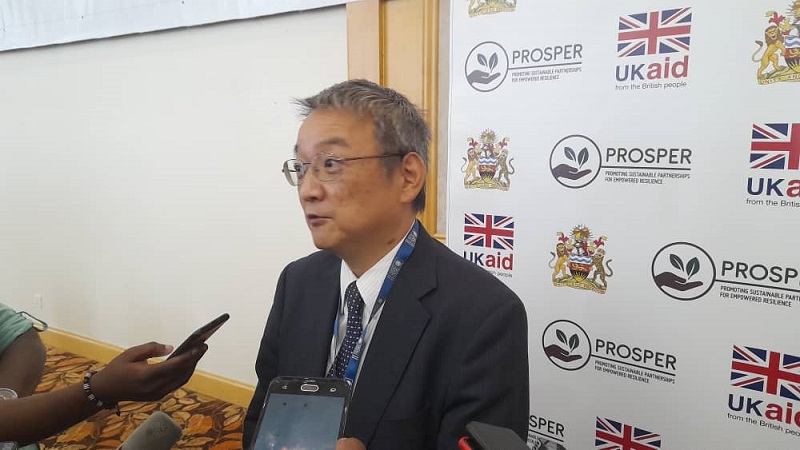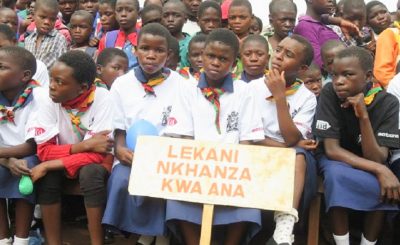The United Nations (UN) has reiterated on the need for concerted efforts if developing countries are to deal with devastating impacts of climate change.
Malawi’s acting UN Resident Coordinator Shigeki Komatsubara said this during a High-Level Roundtable on Resilience and Climate Action in Lilongwe.
According to Komatsubara, effects of climate change impact everyone and there is need for collaborative intervention in dealing with such challenges.
“Climate change impacts everybody and that means we all need to work together so this kind of conference is important for relevant stakeholders to share an understanding.
“Talking is easy, doing is more difficult but doing requires all of us to work together even the people in the villages to understand in a very concrete way what they can do to protect their lives,” said Komatsubara.
The roundtable was aimed at showcasing some achievements and reflecting on best practices in working together to tackle poverty, food insecurity and climate change to inform the all-embracing discourse on climate adaptation and resilience building.
Concurring with Komatsubara, Chief Agriculture Environment and Natural Resources Officer in Balaka District Denis Zingeni said farmers need to be empowered on how they can embark on climate smart technologies and crop diversification.
He said: “We are looking into interventions that are climate smart technologies like we talk of irrigation farming and crop diversification as well to run away from the shocks which affect crop production.
“So these interventions assist farmers to mitigate these shocks so that once they suffer from reduced harvest they can at least mitigate these shocks through crop diversification.”
The discussion brought together participants from Government, Development Partners (Heads of Cooperation) based in Malawi, the United Nations, the Academia and Research Institutions, Local and International Non-Governmental Organisations (NGOs), the Private sector and representation of community members implementing the interventions.
Meanwhile, one of the PROSPER Project beneficiaries Zainab White, a farmer from Group Village Headman Chipole, Traditional Authority (T/A) Mbera in Balaka District has described the project a game changer.
“The introduction of PROSPER Project in my locality has positively impacted us as small-scale farmers through various interventions that we have learnt,” said White.
The roundtable was conducted under the proposed theme: “Looking at best practices in tackling climate change in Malawi to inform government policy”.





